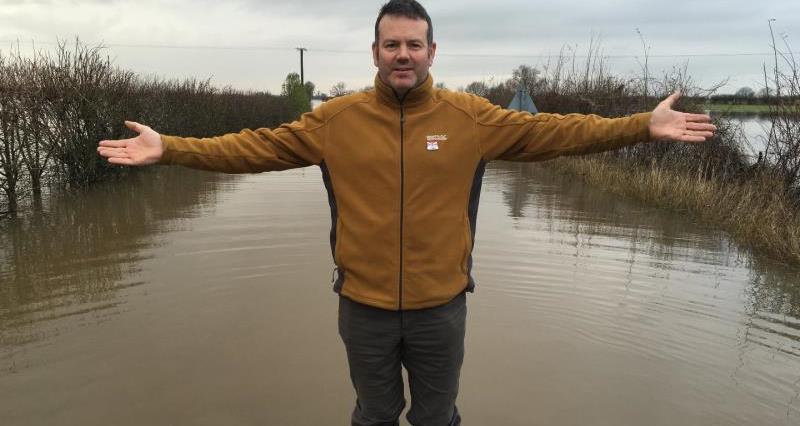Last century, Richards’s farmland flooded five times. Richard has always lived with flooding, but it is the frequency of flooding in recent years which has become so much of an issue- his land has now flooded 8 times in the past 16 years. The frequency of flooding is causing a serious problem for Richard and is driving the need for action.
The recent flooding in December 2015 cost Richard £20,000 and his land was under water for 3 weeks. He was one of 30 farmers in the area that were affected. In 2012, Richard’s farm lost £100,000 due to the flooding.
The crop of wheat lost to flooding in December 2015 (65 acres) would have produced one quarter of a million loaves of bread, but he lost this entire crop.
“Given the challenge facing world food production and our own food security, can we afford to lose our most productive and sustainable land?”
As a result of the frequency of flooding on his land, Richard has been forced to plant spring crops to manage risk and thinks he may have to move entirely to less-profitable spring cropping, unless a more planned approach is taken to managing flood risk. He said "we need to be able to plan”.
“The flood bank around the river Ouse keeps the water away from the local villages like Cawood and the town of Selby. But it does not protect my land from flooding”.
Farmland is also providing another flood service, which should be recognised. His farmland stores floodwater thereby reducing risk for properties and urban settlements, at a loss to his own business but with no recognition or compensation.
Richard also undertakes valuable environmental work on his farm including mixed hedgerows, buffer strips, of which some are florally enhanced. This work means diverse ditch and river bank flora can be found. Bird surveys undertaken over the last ten years found 90 species on his farm alone.
The flooding has destroyed the vast majority of the wildlife that his farm had provided habitat for. “Barns owls have only just started to return following a series of harsh winters, yet the frequent flooding is killing the voles and mice, so hindering their return.”
